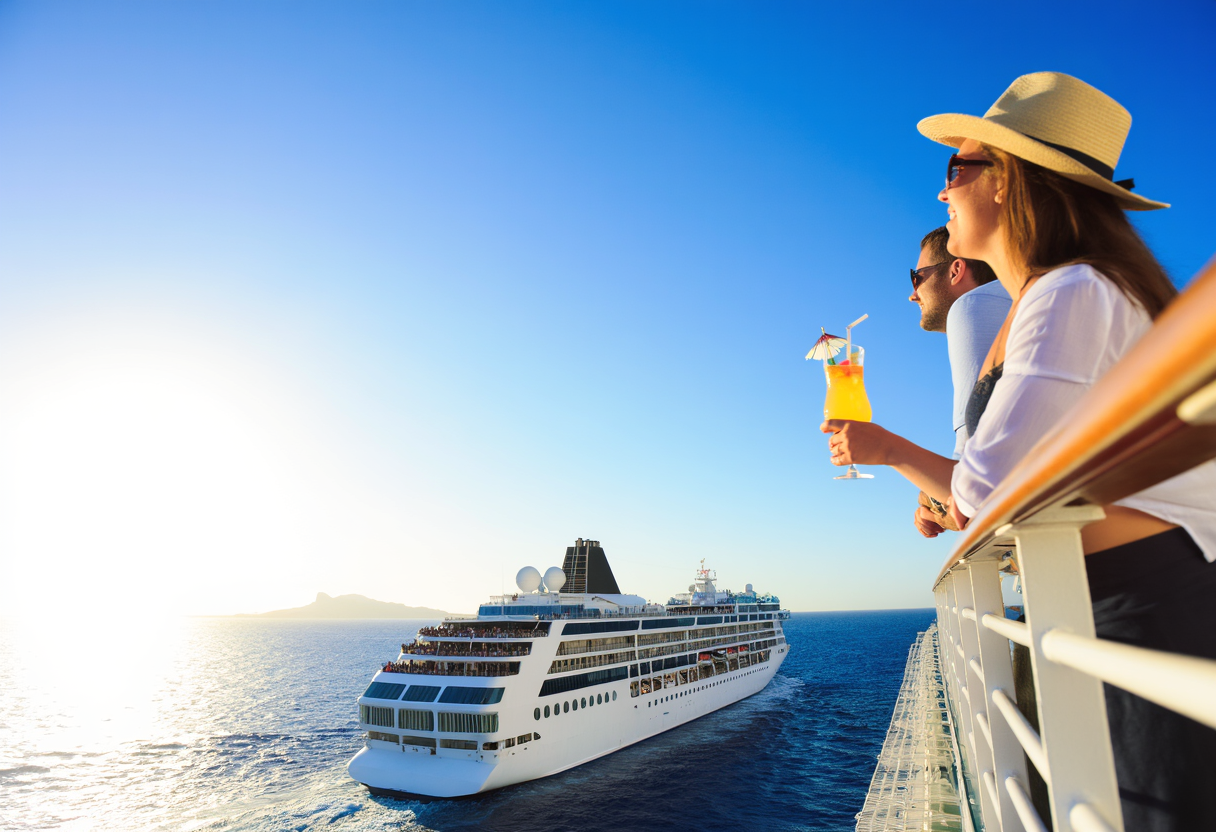The Rise of Global Cruise Tourism: Trends and Insights
Cruise tourism has witnessed unprecedented growth worldwide. From luxury liners to budget-friendly options, travelers are exploring unique itineraries across the globe. This article examines the trends driving this surge, the socio-economic impacts, and how cruise tourism is set to evolve.
Global Growth of Cruise Tourism
In recent years, cruise tourism has taken the global travel industry by storm. A plethora of options exists today, from extravagant cruises to affordable family-friendly options, catering to an expansive market of travelers. The intriguing aspect of cruise tourism lies in its ability to create memorable experiences while offering convenience by visiting multiple destinations in one trip. Additionally, cruise tourism is associated with strong economic contributions, providing a substantial boost to local economies through job creation and tourism revenue. As global travel patterns shift, there is a growing interest in obscure itineraries, enticing adventurous travelers seeking customized experiences. Therefore, cruise lines are recognizing the demand for tailored offerings, reflecting a shift in consumer preferences towards authenticity and cultural immersion. Embracing these trends will be essential for sustaining the momentum of cruise tourism globally.
Changing Demographics in Cruise Tourism
The demographic landscape within cruise tourism is evolving dramatically, attracting an increasingly diverse traveler base. While the traditional demographic has focused primarily on retirees, many cruise lines are targeting young professionals and families with unique offerings. This diversification opens avenues for innovative cruise experiences, allowing for themed adventures and family-centric programs. Moreover, cruise tourism is becoming more accessible, with lines offering smaller ships with specialized itineraries, as well as budget options. Millennial and Gen Z travelers, in particular, seek experiences that go beyond mere relaxation, favoring options that include educational excursions and cultural exchanges. Cruise operators that prioritize family-oriented vacations, meaningful connections, and enhanced onboard experiences will likely capture the attention of this burgeoning market segment. As the demographics change, cruise tourism continues to adapt in response to these identifiable shifts.
The Economic Impact of Cruise Tourism: A Closer Look
The economic contributions of cruise tourism cannot be overstated. This sector generates billions of dollars in economic output, significantly influencing job creation and local business growth in port cities. The influx of cruise tourists leads to increased spending on local tours, restaurants, and attractions, creating a ripple effect on regional economies. Furthermore, cruise lines are beginning to partner with local businesses, enhancing the visitor experience while also fostering positive relationships with communities they touch. However, challenges persist in ensuring that the benefits of cruise tourism are equitably distributed. Sustainable practices are necessary to ensure that local communities do not face the adverse effects of overtourism. Developing strategies that promote responsible cruising will be paramount in bolstering local economies while maintaining cultural integrity. Through a concerted effort, cruise tourism can achieve a balanced economic model that benefits all stakeholders.
Technological Advancements Shaping Cruise Tourism
Technology is playing an increasingly significant role in shaping the cruise tourism experience. From enhanced booking systems to onboard innovations, technology has revolutionized how cruise lines operate and engage with their customers. Personalized mobile applications allow travelers to customize their itineraries and excursions, creating a tailored experience that accommodates individual preferences. Moreover, advancements in health and safety protocols have become imperative in ensuring passenger confidence amid ongoing global health concerns. Cruise lines are investing in technologies that facilitate contactless boarding, improved sanitization practices, and real-time health tracking. As technology continues to transform the industry, cruise tourism is poised to integrate more innovations that not only enhance guest experiences but also streamline operations. Adapting to these changes will be vital for cruise lines aiming to stay competitive in a rapidly evolving market.
Environmental Considerations in Cruise Tourism
As cruise tourism expands, so do the environmental challenges associated with it. The industry's impact on marine ecosystems is increasingly under scrutiny, prompting cruise lines to adopt more sustainable practices. Conscious efforts are being made to invest in cleaner technologies and eco-friendly initiatives to minimize environmental footprints. Initiatives like waste reduction, energy efficiency, and responsible sourcing are becoming integral components of cruise operations. Moreover, awareness of local environmental concerns encourages cruise companies to foster positive relationships with local communities while safeguarding natural resources. However, balancing economic growth with environmental stewardship remains a challenge. Collaborating with environmental organizations and governments will be essential to developing solutions that protect ecosystems while allowing cruise tourism to flourish. The future of cruise tourism depends on the industry's ability to adapt to these pressing environmental considerations.
The Future of Cruise Tourism: What Lies Ahead?
Looking towards the future, the potential expansion of cruise tourism appears promising. As consumer preferences continue to evolve, cruise lines will strive to offer enhanced experiences that cater to diverse traveler needs. Innovations in ship design, integrated wellness, and immersive itineraries will likely shape future offerings, reflecting the desires of sustainability-conscious travelers. Moreover, inclusivity will remain a key focus as cruise lines aim to attract a wider range of demographics, emphasizing accessible options for travelers of all ages. Navigating an ever-changing travel landscape requires agility and foresight, ensuring that cruise tourism aligns with global trends and emerging demands. Ultimately, stakeholders must collaborate to develop a vision for a sustainable future that enhances the cruise experience while benefitting travelers, communities, and the environment alike.
